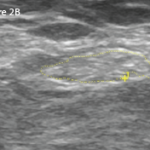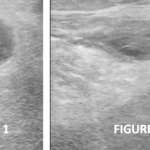Regarding persistent post-TKA pain, Dr. Sporer said, “There’s about a 15% incidence of persistent pain after TKA. At the end of day, we throw our hands up and say, ‘I don’t know.’ This is why it’s important to look at the severity of disease prior to surgery. The indication matters, as does a candid discussion with the patient to let them know they may struggle a bit more in post-op recovery.”
Last, Dr. Sporer explained that after total joint arthroplasty, a significant amount of synovium typically remains intact. “Different surgeons do it different ways. Some remove more than others, but complete synovectomy isn’t usually performed unless there’s an infection,” he said.
Thus, in our patients with inflammatory arthritis who’ve undergone joint replacement surgery, synovitis remains on the differential when joints hurt, but it’s important to consider prosthetic-related issues too.
Summary
Total joint arthroplasties are incredible operations that can truly change a patient’s life. Outpatient surgeries can be safe for the right patient, and consensus guidelines exist to guide the perioperative management of antirheumatic medications. If your patient is having joint-replacement surgery, call their surgeon. Together, you can help keep patients safe and dramatically improve their quality of life.
Samantha C. Shapiro, MD, is an academic rheumatologist and an affiliate faculty member of the Dell Medical School at the University of Texas at Austin. She received her training in internal medicine and rheumatology at Johns Hopkins University, Baltimore. She is also a member of the ACR Insurance Subcommittee.
References
- DeMik DE, Carender CN, An Q, et al. Has removal from the inpatient-only list increased complications after outpatient total knee arthroplasty? J Arthroplasty. 2021 Jul;36(7):2297–2301.e1.
- Jaibaji M, Volpin A, Haddad FS, et al. Is outpatient arthroplasty safe? A systematic review. J Arthroplasty. 2020 Jul;35(7):1941–1949.
- Kurtz SM, Lau E, Watson H, et al. Economic burden of periprosthetic joint infection in the United States. J Arthroplasty. 2012 Sep;27(8 Suppl):61–65.e1.
- Siqueira MBP, Saleh A, Klika AK, et al. Chronic suppression of periprosthetic joint infections with oral antibiotics increases infection-free survivorship. J Bone Joint Surg Am. 2015 Aug 5;97(15):1220–1232.
- Blizzard DJ, Penrose CT, Sheets CZ, et al. Ankylosing spondylitis increases perioperative and postoperative complications after total hip arthroplasty. J Arthroplasty. 2017 Aug;32(8):2474–2479.
- Luthringer TA, Vigdorchik JM. A preoperative workup of a “hip-spine” total hip arthroplasty patient: A simplified approach to a complex problem. J Arthroplasty. 2019 Jul;34(7S):S57–S70.
- Goodman SM, Springer B, Guyatt G, et al. 2017 American College of Rheumatology/American Association of Hip and Knee Surgeons guideline for the perioperative management of antirheumatic medication in patients with rheumatic diseases undergoing elective total hip or total knee arthroplasty. Arthritis Care Res (Hoboken). 2017 Aug;69(8):1111–1124.
- 2022 American College of Rheumatology/American Association of Hip and Knee Surgeons guideline for the perioperative management of antirheumatic medication in patients with rheumatic diseases undergoing elective total hip or total knee arthroplasty [summary document]. 2022 Mar 17. Full manuscript submitted for publication in Arthritis & Rheumatology and Arthritis Care & Research.

